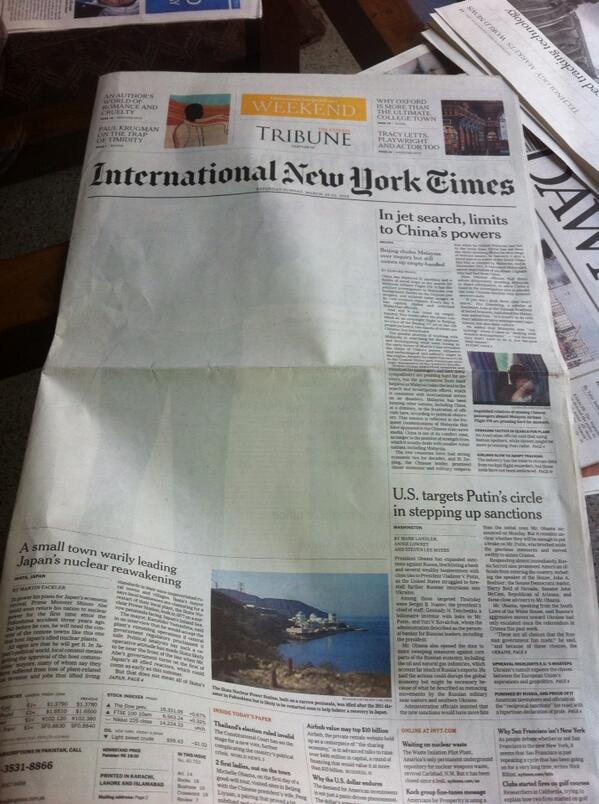Five years after the first government was toppled during the Arab Spring, it’s time to assess the challenges and opportunities facing Russian diplomacy in the region.
Tunisians celebrate the fifth anniversary of the Arab Spring, Thursday, Jan.14, 2016 in Tunis. Photo: AP
On Jan. 14, 2011, the regime of Tunisian President Ben Ali fell, becoming the first victim of the Arab Spring, a series of events that seriously shook up the greater Arab world and led to a qualitative change in the balance of power in the Middle East.
What events led to the Arab Spring?
Often among Russian journalists and public figures, the view is expressed that the events in the Arab world leading to the phenomenon of the “Arab Spring” were provoked from someone from the outside. Moreover, they claim, all these processes are very much reminiscent of the “Color Revolutions” in the post-Soviet space.
It should be noted here that responsible political scientists – specialists on the Middle East – reject this simplified point of view. Thus, Moscow State Institute of International Relations (MGIMO-University) professor Maria Sapronova noted as early as during the initial phase of the Arab Spring that, “the authoritarian regimes had for a long time created the appearance of social stability, but their leaders had lost touch with the people, and were ignoring the growing serious economic difficulties.”
However, not only esteemed academics in Russia understand the real reasons for the “revolutionary processes” in the Arab world. In an interview with an Egyptian newspaper in 2014, Russian Foreign Minister Sergey Lavrov
stated that “the transformations in the Arab world are caused by a series of deep factors, both objective and subjective.”
In general, continued Lavrov, these processes are political and economic in nature, since “the former authorities did not fully meet the immediate needs of their populations, were not ready to feel the demands for change.”
The Arab Spring and the new balance of power
The “Arab revolution” led to changes in government not only in
Tunisia, but also in
Egypt,
Libya and
Yemen. The Arab Spring also opened the way to bloody civil wars in Libya, in Yemen, and especially in
Syria. In addition, this radical wave caused ferment and civil strife in many other countries of the Arab world.
However, the five years of the Arab Spring also marked a qualitative modification in the balance of power in the Arab world. The five-year period that began with the overthrow of Tunisia's leader showed that suffering from the brunt of the “Arab revolution” were those states that, albeit, authoritarian and non-democratic, were also secular in their social model – Tunisia, Egypt, Libya and Syria. Here, it is possible to agree with the views of St. Petersburg expert
Alexander Sotnichenko that this storm, in fact, has led to the end of the Arab nationalism project.
Accordingly, the geopolitical roles of the countries promoting this project have been significantly weakened (Egypt, Syria) or simply negated (Libya). On the contrary, during the last five years, coming to the fore as leaders of the Arab world were the Gulf countries (
Saudi Arabia and Qatar), the domestic and foreign policies of which are overtly conservative, if not reactionary in character.
Moreover, these countries are increasingly interfering in the internal affairs of their neighbors, ever more assertively fighting to expand their influence in the region, as evidenced, in particular, by the
severance of diplomatic relations between Saudi Arabia and Iran, which occurred in early January, shortly after the executions in the Saudi Kingdom of the Shiite cleric Nimr al-Nimr.
Will the war against ISIS help or hurt Russia’s influence in the region?
At first, the response of Moscow was quite calm to the tumultuous upheavals in the Arab world, as well as to events in North Africa and the Middle East.
The Russian leadership refused to use its veto in the UN Security Council in order to save the regime of Muammar Gaddafi, a Libyan dictator, from the imposition of a no-fly zone in Libya during an anti-government uprising in that country. Subsequently, Moscow recognized the results of the elections to legitimize the new authorities in Tunisia, Egypt and Libya.
However, at all times, Russia was very critical of the overall strategy of the united West, led by the United States. In the Middle East,
it said, “attempts to transplant onto the soil of other countries own models of state structure and development, ignoring the traditions and values of others... will not bring success.”
AFTER THE COLD WAR ENDED, VERY FEW COUNTRIES IN THE ARAB WORLD REMAINED MORE OR LESS UNDER THE INFLUENCE OF RUSSIAN FOREIGN POLICY.
After the Cold War ended, very few countries in the Arab world remained more or less under the influence of Russian foreign policy. However, the whirlwind of “Arab revolutions” brought a clear threat, and increased this influence. However, there are exceptions.
For example, after coming to power in Egypt, the generals led by Abdel al-Sisi greatly intensified political and economic ties between Moscow and Cairo, and Russian President Vladimir Putin publicly stressed the “remarkable personal courage” of the new Egyptian leader in his fight against terrorism.
Therefore, as the civil war intensified in Syria, leading to a real threat that the regime of President Bashar al-Assad would fall, as well as the prospect of further expansion of the influence of ISIS, forced the Russian government
to openly join the aerial military campaign at the end of September 2015. It is unlikely that this decision was in the works long before that time, as just a year before, Lavrov stressed that, "we do not support any of the parties in the internal conflict in Syria.”
The opinion of the author may not necessarily reflect the position of Russia Direct or its staff.
|
Yet the decision to become directly engaged in the Syrian war has ambiguous consequences for Russia’s influence in the broader Middle East. On the one hand, as the historian
Georgiy Mirskiy noted, “Putin saved Damascus... from the fate of Kabul.”
At the same time, most of the Arab countries, which today are under the influence of Saudi Arabia, are openly not happy with the role being played by the military aviation forces of Russia in Syria. The newly formed “Sunni Coalition against Terrorism,” with Saudi Arabia at the center, clearly intends to fight against ISIS, and intends to remove Assad from power in Damascus as well.
Apparently, the task of Russian diplomacy in the coming year will be to explain the legitimacy and correctness of Moscow’s position in influential Sunni Arab countries. This is a delicate and very difficult task, given that a significant part of public opinion in the Arab world sees the Syrian conflict as a continuation of the traditional struggle between Sunni and Shia sects.
At the same time, the terrorist attacks that have been occurring in January in various countries of the East have demonstrated once again that the threat posed by “international terrorists” is fatal in nature, including in societies dominated by Sunni Muslims.
This factor, no doubt, will be used by Russian diplomacy in the future, bringing Moscow’s views to Arab politicians, and once again claiming that Russia’s foreign policy towards the Arab world is based on the principles of respect for national sovereignty, territorial integrity and non-interference in internal affairs of other countries.











